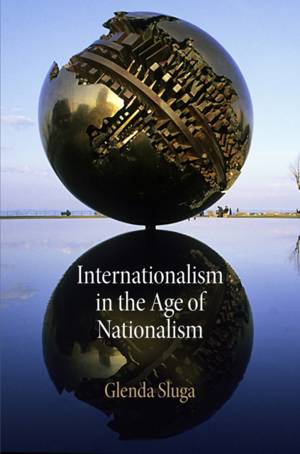
- Afhalen na 1 uur in een winkel met voorraad
- Gratis thuislevering in België vanaf € 30
- Ruim aanbod met 7 miljoen producten
- Afhalen na 1 uur in een winkel met voorraad
- Gratis thuislevering in België vanaf € 30
- Ruim aanbod met 7 miljoen producten
Omschrijving
The twentieth century, a time of profound disillusionment with nationalism, was also the great age of internationalism. To the twenty-first-century historian, the period from the late nineteenth century until the end of the Cold War is distinctive for its nationalist preoccupations, while internationalism is often construed as the purview of ideologues and idealists, a remnant of Enlightenment-era narratives of the progress of humanity into a global community. Glenda Sluga argues to the contrary, that the concepts of nationalism and internationalism were very much entwined throughout the twentieth century and mutually shaped the attitudes toward interdependence and transnationalism that influence global politics in the present day.
Internationalism in the Age of Nationalism traces the arc of internationalism through its rise before World War I, its apogee at the end of World War II, its reprise in the global seventies and the post-Cold War nineties, and its decline after 9/11. Drawing on original archival material and contemporary accounts, Sluga focuses on specific moments when visions of global community occupied the liberal political mainstream, often through the maneuvers of iconic organizations such as the League of Nations and the United Nations, which stood for the sovereignty of nation-states while creating the conditions under which marginalized colonial subjects and women could make their voices heard in an international arena. In this retelling of the history of the twentieth century, conceptions of sovereignty, community, and identity were the objects of trade and reinvention among diverse intellectual and social communities, and internationalism was imagined as the means of national independence and national rights, as well as the antidote to nationalism. This innovative history highlights the role of internationalism in the evolution of political, economic, social, and cultural modernity, and maps out a new way of thinking about the twentieth century.Specificaties
Betrokkenen
- Auteur(s):
- Uitgeverij:
Inhoud
- Aantal bladzijden:
- 224
- Taal:
- Engels
- Reeks:
Eigenschappen
- Productcode (EAN):
- 9780812223323
- Verschijningsdatum:
- 13/04/2015
- Uitvoering:
- Paperback
- Formaat:
- Trade paperback (VS)
- Afmetingen:
- 152 mm x 229 mm
- Gewicht:
- 335 g

Alleen bij Standaard Boekhandel
Beoordelingen
We publiceren alleen reviews die voldoen aan de voorwaarden voor reviews. Bekijk onze voorwaarden voor reviews.







